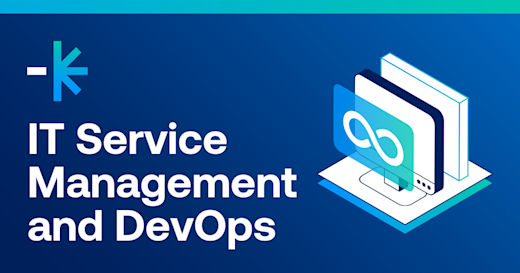Got a question? Call 0800 835 835 | Login
In today’s world, the demand for advanced technical skills is skyrocketing. However, many seasoned professionals find themselves at a crossroads. While they have years of hands-on experience, they lack the formal qualifications that are increasingly required for higher-level positions.
This mismatch between real-world experience and formal credentials is more than just a personal setback for these individuals, as it's also a systemic issue that limits the industry's ability to fully utilise the rich expertise of its veteran workforce. Without a bridge to connect practical experience with formal recognition, both the professionals and the industry are at a disadvantage, missing out on opportunities for growth and innovation.
This is where Recognition of Prior Learning (RPL) comes in. In this blog, we will discuss what RPL is, its benefits for career advancement and industry growth, and how Lumify can help bridge the gap between experience and formal qualifications.
What is Recognition of Prior Learning?
RPL is an assessment process used by educational institutions (like Lumify Learn) and professional organisations to evaluate the skills and knowledge that individuals have gained outside of formal education and training.
It acknowledges the fact that learning occurs in various contexts, such as the workplace, through volunteer activities, or self-study. RPL provides a pathway for people to receive formal recognition for their existing competencies, potentially leading to a qualification that reflects their practical experience.
What Does the RPL Process Involve?
The RPL process typically entails a thorough review of an individual’s experience against the learning outcomes or competency standards of units of competency within a particular qualification. Candidates must provide evidence of their skills, which can include work samples, references, or testimonials from employers. Assessments and interviews may be done as well. If gaps are identified, candidates may need to undertake further training or study to meet the qualification requirements.
What are the Benefits of RPL?
There are a multitude of advantages that recognition of prior learning offers, such as:
Career Advancement
RPL serves as a catalyst for career progression, offering individuals a pathway to formal qualifications that can unlock opportunities for promotions and access to higher-level job positions.
For instance, an employee who has gained extensive experience in cyber security through years of on-the-job training and project involvement can leverage RPL to attain formal recognition of their skills and advance to a senior cyber security role within their organisation.
Time Efficiency
RPL offers a streamlined pathway to obtaining formal qualifications efficiently. This method significantly reduces the time typically required, enabling individuals to bypass redundant training and coursework. As a result, they can accelerate their journey towards achieving recognised qualifications.
Personal Development
RPL also catalyses personal growth, aside from legitimising an individual’s existing skills and knowledge. It reinforces self-assurance and drives motivation, encouraging professionals to aim higher, tackle new challenges, and engage in lifelong learning. This validation serves as a powerful affirmation of their professional competencies, inspiring them to broaden their horizons and strive for excellence.Workforce Skill Recognition
As RPL formally recognises the diverse skills present within the workforce, this provides valuable insights for organisational planning and development. By acknowledging and documenting employees' competencies, organisations can better align training initiatives, optimise resource allocation, and strategically leverage existing talent to meet evolving business needs.Closing the Skills Gap
RPL transforms individual experience into coveted qualifications, seamlessly helping close the skills gap. It’s a strategic move that aligns personal expertise with professional standards, which then enhances job prospects and gives organisations a competitive advantage in the ever-evolving IT landscape.
Learning Pathway Customisation
Imagine an IT professional who is proficient in several programming languages but lacks formal qualifications in data analysis. Through RPL, they can skip the programming modules they’re already skilled in and focus on data analysis units of competency. This customised pathway accelerates their learning process, enabling them to efficiently fill their skill gaps and achieve a comprehensive qualification in a shorter timeframe.
Industry Relevance
RPL keeps formal qualifications remain relevant and up to date with current industry practices and standards. This ensures that individuals are equipped with the knowledge and competencies that are required to excel in their respective fields.
Better Employee Retention
Employers who support RPL demonstrate a commitment to employee development, thereby enhancing staff retention and loyalty. Once they invest in their employees’ growth and professional development, they foster a culture of continuous learning and career progression, thus strengthening employee engagement and retention.
Unlock Your Potential with Lumify’s RPL program
Seeking to advance your career in IT? At Lumify, we understand the importance of bridging the gap between your experience and formal qualifications. That’s why we offer the perfect opportunity to transform real-world experience into formal qualifications through our RPL program. If your existing experience and skills are officially recognised, you can gain formal qualifications to enrol in the following courses:
ICT50220 Diploma of Information Technology (Advanced Networking): This course will help you gain skills necessary to set up and manage complex network environments while also teaching you to address and mitigate cyber threats.
ICT50220 Diploma of Information Technology (Cyber Security): This program teaches you how to enhance workplace cyber security awareness and implement best practices. It focuses on designing systems that proactively prepare for and respond to various cyber threats.
You will be assessed in one of two ways:Written portfolio/CV/Resume: Compile your portfolio of evidence and submit it to us
Recognition interview: In this method, you must collate your portfolio of evidence and contact us to arrange an ideal date and time (via Teams or Zoom) to present your portfolio to an assessor during a recognition interview.
While RPL will not reduce the course fees, it can fast-track you through to completion of your course. You can also apply for the program if you’re an IT organisation committed to supporting the ongoing professional development of your team members.
Don't let your valuable experience go unrecognised. Contact us today to learn more about our RPL program.






